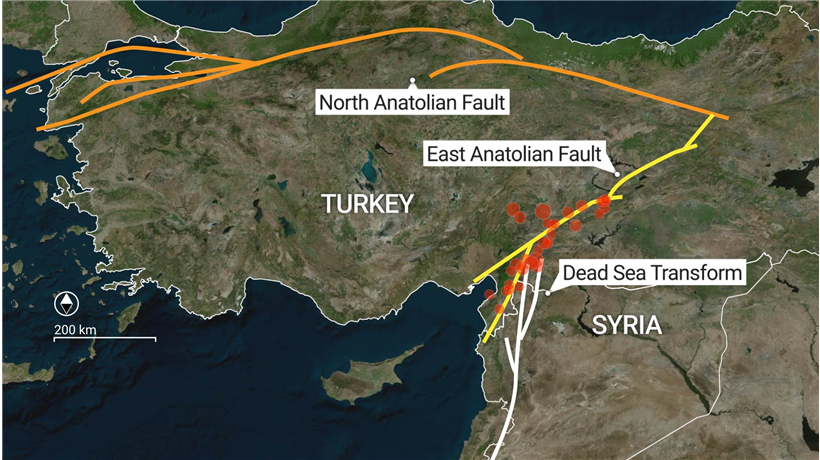If you’ve been in tune with the news this week, you have probably heard of the massive earthquakes hitting Turkey and Syria the past couple days. These two countries lay on geographical regions known as “fault lines,” which are essentially fractures between tectonic plates. These regions are highly prone to earthquakes as tectonic plates scrape past each other, explaining why these natural disasters are hitting Turkey and Syria.

Thousands have been killed and many more have been injured as a result. Turkish president Recep Tayyip Erdogan faces heavy criticism from all angles, due to the government’s lack of meaningful response and evidence of previous corruption. Erdogan, in the 2010’s, supported and oversaw a construction boom which intended to bolster Turkey’s economy. A lot of money was put into this economic project; money that may not have truly gone towards the Turkish people. Infrastructure built during this period of time shows evidence of cut corners and shoddy building standards – implying corruption in Erdogan’s administration.
Erdogan is an authoritarian ruler who’s grip over Turkey is in danger due to recent events coupled with a history of economic crisis. Turkish elections are due in only a couple months: May 14th, 2023. As both the Turkish people and the international community put pressure on Erdogan, this may pave way for political changes in Turkey.

Many relief efforts have been launched for the Turkish and Syrian people, and the situation remains to be sorted. For more information on the situation:
https://www.bbc.com/news/world-middle-east-64608535
https://www.cnn.com/middleeast/live-news/turkey-syria-earthquake-updates-2-11-23-intl/index.html
Featured Image: Mustafa Karali/AP
Image Sources:
Erdogan Image: Adem Altan/AFP/Getty Images
